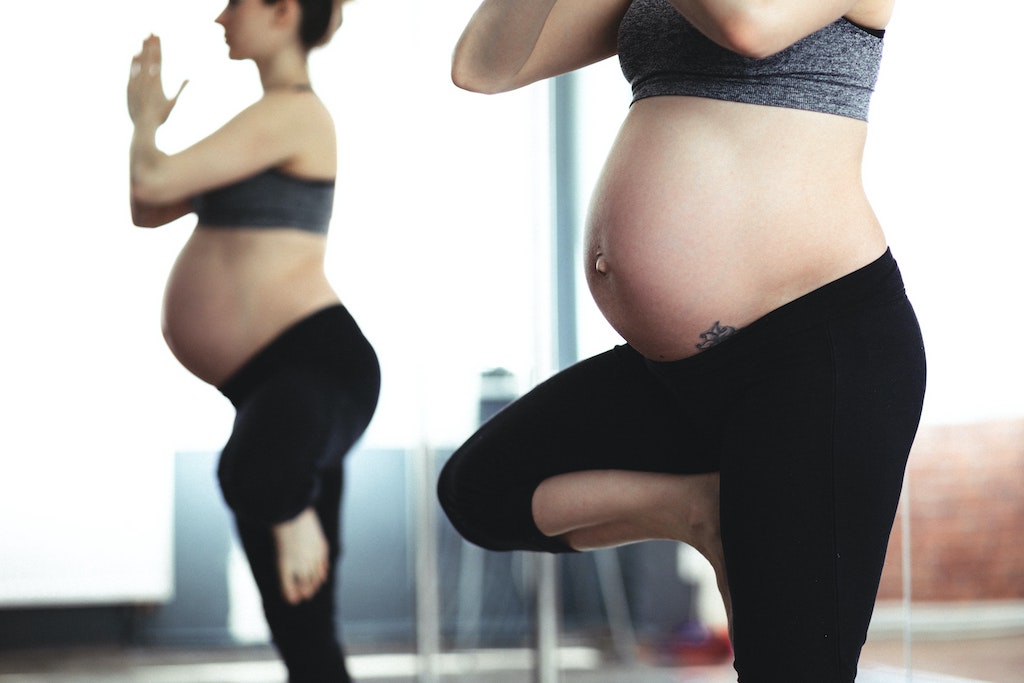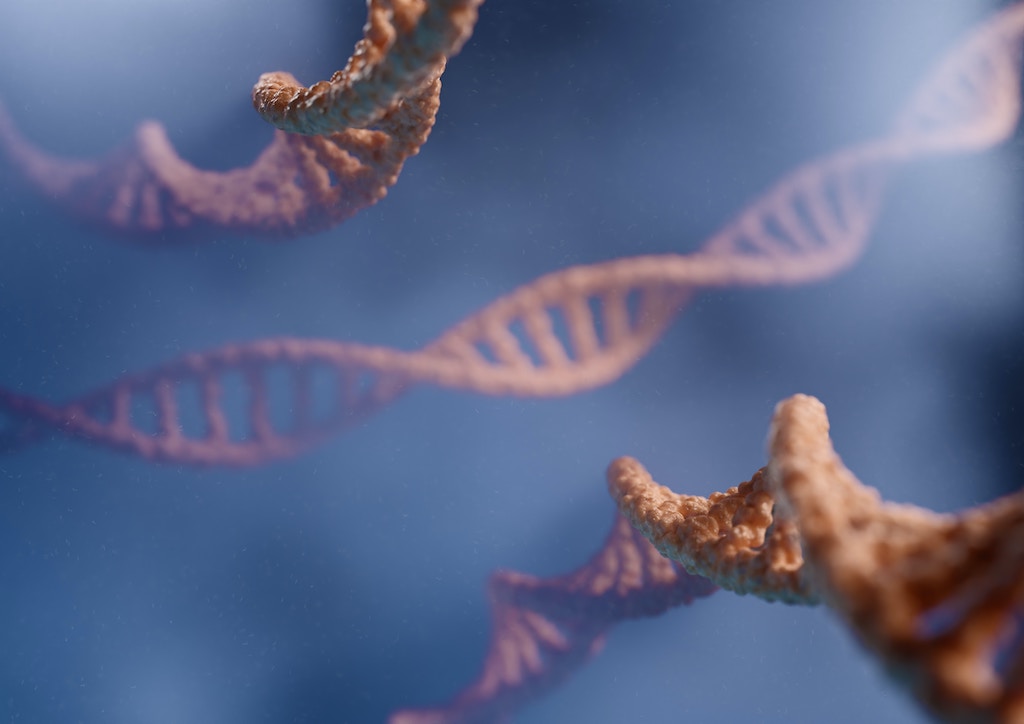SingaporeMotherhood | Pregnancy
October 2023
Does your Lifestyle affect your Miscarriage Risk? These 9 Facts will help Clear the Air

The birth of a new baby is a joyous occasion. However, for every mum-to-be who carries a precious pregnancy to term, there may be another who has a miscarriage. Such a loss triggers myriad emotions — anger, guilt, sadness, fear — and questions that often go unasked, and unanswered. Often, women blame themselves. Was it something I did, or ate, or drank? Dr Zeng Shanyong of DTAP Clinic helps address some common misconceptions about miscarriages, while shedding light on how your lifestyle during pregnancy may affect your risk.
First of All, What is a Miscarriage?
A miscarriage, also known as spontaneous abortion, is the unexpected ending of a pregnancy. There are many misconceptions regarding certain lifestyle choices during pregnancy and whether they result in miscarriages. Dr Zeng cautions that certain practices should be avoided in order to reduce the risk of miscarriages, and clears the air on miscarriage misconceptions below.

1. Miscarriages are common
Miscarriages in early pregnancy are common. Studies have shown that approximately 8 to 20 per cent of women who know that they are pregnant have a miscarriage before they reach 20 weeks of pregnancy. In fact, 80 per cent of miscarriages occur in the first 12 weeks of gestation.
However, actual rates of miscarriages are likely to be higher, as they can occur even before the pregnancy is known. Some studies estimate that rates could be as high as 30 per cent.
Miscarriages after a 20-week gestation period are relatively rare, accounting for only 1 per cent of total miscarriages.
2. Miscarriages are out of your control
Most miscarriages are unpreventable due to factors out of one’s control. During early pregnancy, more than 50 per cent of miscarriages occur because of chromosomal abnormalities in the embryo. Extra chromosomes, such as in Down Syndrome, can lead to developmental abnormalities resulting in a spontaneous abortion. These abnormalities are not within anyone’s control.
(See also: Prenatal Scans and Tests for your Peace of Mind when Pregnant)

3. One miscarriage it does not mean that you will have another
Miscarriages are one of the most common complications of pregnancy. However, a single miscarriage does not mean that your subsequent pregnancy carries an increased risk of miscarriage. Prospective studies show that overall risk of miscarriage remains at 15 per cent, a baseline risk after one miscarriage.
However, recurrent miscarriages do increase the risk of subsequent miscarriages. The same studies show that the risk increases by 17 to 31 per cent after two consecutive miscarriages. This increases further to 25 to 46 per cent after three or more miscarriages.
4. Exercise does not induce a miscarriage
For the majority of mums-to-be who are healthy and have uneventful pregnancies, most exercises are safe and do not increase the risk of spontaneous miscarriages. If you are an experienced sportswoman, it should be safe to continue with your normal activities after consulting your doctor.
However, certain sports should be avoided. Contact sports like boxing, basketball, and football can lead to abdominal trauma. Off-road cycling, skiing, and surfing can increase the risk of falls and should be avoided as well. The safest exercises during pregnancy, according to the American College of Obstetricians and Gynecologists, are walking, swimming, water-workouts, stationary bike cycling, and modified yoga/Pilates.

However, women with certain medical conditions or complications during pregnancy should not exercise during these 40 weeks. These include those with certain heart and lung conditions, severe anaemia, who are pregnant with twins or triplets, or who have pre-eclampsia, and placenta previa. Always consult your healthcare provider before embarking on exercise during pregnancy, especially if you have existing medical conditions or experience pregnancy complications.
(See also: Exercise during Pregnancy: What you need to know)
5. Sex will not induce a miscarriage
When the pregnancy is uneventful, having sex is safe and will not lead to a spontaneous miscarriage. The developing foetus is well cushioned by the walls of the uterus as well as the amniotic fluid. The mucus plug in the cervix also prevents infection from ascending into the uterus.
There are, however, a few conditions when sex should be avoided. When the placenta is lying directly over the cervix, a condition known as placenta previa, penetrative sex can cause bleeding. Sex should also be avoided during preterm labour, as well as when the amniotic sac has ruptured, as it could lead to an ascending infection into the uterus.
6. Stress and injuries may induce a miscarriage

Up to 75 per cent of women believe that maternal stress can induce an abortion, though everyday stressors such as arguments and disagreements are unlikely to harm the foetus. However, prolonged exposure to stress, such as living in poor conditions or staying in abusive relationships, can impair one’s mental health and increase the risk of spontaneous abortion.
Similarly, the foetus is unlikely to be affected from falls and minor bumps to the belly as the uterus cushions it with strong muscular walls and amniotic fluids. However, significant trauma such as car accidents, or even medical procedures like chorionic villus sampling or amniocentesis can potentially cause pregnancy loss.
(See also: Prenatal Scans and Tests for your Peace of Mind when Pregnant)
7. There’s still no definitive word on the caffeine-miscarriage link
The effect of caffeine on miscarriage is uncertain, with multiple studies providing mixed reports.
A review of the medical literature in 2011 noted that consuming caffeinated beverages did not increase the risk of spontaneous pregnancy loss, even at the amount of around 10 cups of coffee per day. Many studies do not observe an association with miscarriage with any degree of caffeine exposure.
For the studies that do, there seems to be a relationship between the caffeine dose and the risk of spontaneous miscarriage. However, the ‘safe’ threshold differs from study to study. Some report increasing risks at more than 300 mg of caffeine per day, about three cups of coffee. Others say the risk increases from above 100 mg of caffeine per day.

As the results are inconsistent, we are uncertain of the risk of caffeine on miscarriage. However, a very low dose of caffeine, such as a small cup of coffee or tea daily, appears to be safe.
(See also: Super 7: Popular Tonics and Supplements for Pregnancy and Beyond)
8. Smoking increases the risk of miscarriage
Smoking has been associated with numerous adverse pregnancy outcomes, such as placental abruption, preterm labour, and low birth weight. Mums-to-be who smoke increase the relative risk of miscarriage by around 1 per cent per cigarette smoked per day. Passive smoke exposure through partner smoking increases the risk of miscarriages by around 17 per cent.
9. Alcohol consumption also increases the risk of miscarriage
Alcohol is a teratogen which can cause physical, mental, behavioural, and cognitive problems in the developing foetus. The most severe consequences of prenatal alcohol exposure are stillbirths, and a condition known as Foetal Alcohol Spectrum Disorder (FASD).
A study in the United States also noted that alcohol exposure during weeks 5 to 10 of pregnancy was associated with increased risk of early pregnancy loss. Each successive week of alcohol exposure causes an 8 per cent increase in risk of early pregnancy loss compared to non-drinkers, with the risk being cumulative. There is no confirmed ‘safe’ threshold for alcohol exposure during pregnancy. Hence the best approach is to avoid it completely.
Risk Factors and Causes of Miscarriages

Congenital chromosomal abnormalities are the most common causes of miscarriage. However, there are also other maternal factors that can lead to spontaneous pregnancy losses:
Uterine abnormalities: Abnormalities within the uterus such as fibroids, adhesions, or an incompetent cervix, can lead to second-trimester pregnancy losses.
Infections: Various infections have been associated with increased risk of miscarriage. For instance, untreated syphilis leads to a 21 per cent increased risk of foetal loss and stillbirth. Parvovirus B19, Zika, and Cytomegalovirus infections are also associated with increased risk of pregnancy loss at 8, 6, and 2.5 per cent respectively.
Maternal age: Rising maternal age – starting from age 35 and above – increases the risk of pregnancy loss. This is due to the higher likelihood of foetal chromosomal abnormalities.
Diabetes: Uncontrolled diabetes can result in lethal foetal anomalies and foetal loss. Fortunately, good sugar control preconception can bring the risk back to the baseline.
Obesity: Having a Body Mass Index of more than 25 increases the risk of pregnancy loss within the first 20 weeks of gestation by nearly 70 per cent.
Thyroid disease: Both uncontrolled hyperthyroidism and hypothyroidism have been associated with increased risk of pregnancy loss. Some studies suggest that it can double the baseline risk.
(See also: Dealing With Miscarriage)
Recurrent Pregnancy Loss
There are couples who experience recurrent miscarriages. For women with two or more failures of clinically recognised pregnancies before 20 to 24 weeks of gestation, this is termed Recurrent Pregnancy Loss (RPL).
Unfortunately, there is no singular treatment available for RPL. The main goals are to identify and treat any reversible maternal and foetal risk factors for miscarriage. This involves a complete medical, surgical, genetic, and family history check-up, with a physical examination.

It may also involve medical imaging of the uterus, a genetic analysis of both parents, as well as a full medical check-up to identify any underlying medical conditions that the parents may have.
Thankfully, even with RPL, most women have a good prognosis for eventually having a successful pregnancy. This is true even without a definitive diagnosis and treatment. One study estimated that the overall live birth rates after a diagnosis of RPL range from 71 to 77 per cent.
(See also: True Story: Baby after Cancer, Business after Miscarriages)
How to Ensure a Safe Pregnancy Journey
Even though miscarriage is fairly common and sometimes unpreventable, there are still many things you can do to give your foetus the best chance at life. Getting regular health check-ups, a healthy lifestyle and diet, and sufficient prenatal vitamins are just some of the ways that help increase the chances of a safe pregnancy.
Pregnancy is the start of a wonderful journey, but that does not end with birth; it will last for a lifetime. Many mothers look back fondly on the period when they were pregnant as this is the time when they were closest in body and spirit with their children.
So for all the expecting mummies out there, enjoy the ride! Despite morning sickness, the constant need to urinate, backaches, leg swelling, and breathlessness, when you finally hold your newborn in your arms, you will look back and remember the most magical nine months of your life.
(See also: Pregnancy Self-Care, Trimester-by-trimester)

Featured image: freepic.diller on Freepik
All content from this article, including images, cannot be reproduced without credits or written permission from SingaporeMotherhood.
Follow us on Facebook, Instagram, and Telegram for the latest article and promotion updates.





